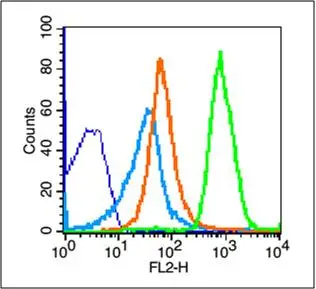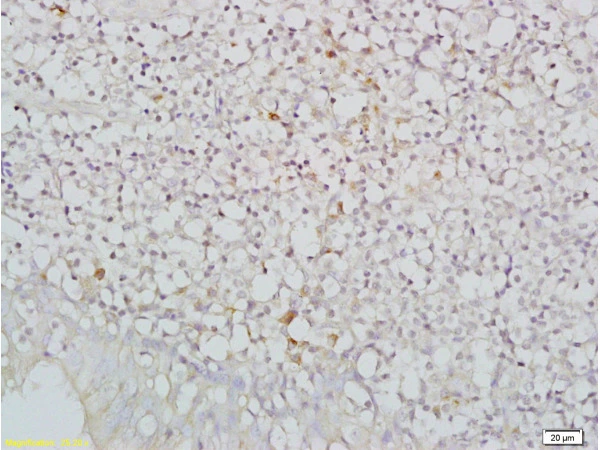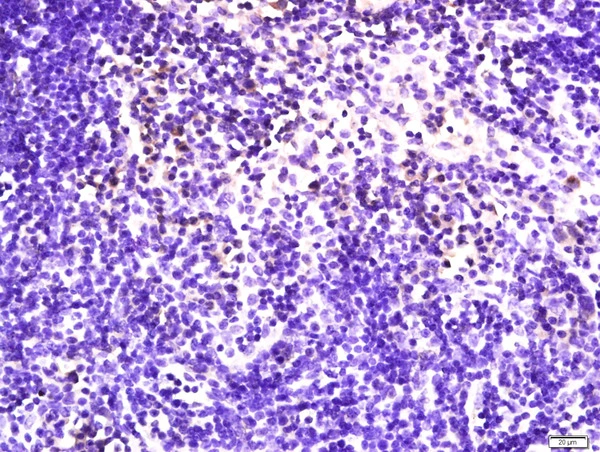
FACS analysis of mouse thymus cells using GTX50988 NKG2D antibody. Green : Primary antibody Blue : Unstained cells Orange : Isotype control Light blue : Secondary antibody only Dilution : 1:100
NKG2D antibody
GTX50988
ApplicationsFlow Cytometry, ImmunoFluorescence, ImmunoCytoChemistry, ImmunoHistoChemistry, ImmunoHistoChemistry Paraffin
Product group Antibodies
ReactivityHuman, Mouse
TargetKlrk1
Overview
- SupplierGeneTex
- Product NameNKG2D antibody
- Delivery Days Customer9
- Application Supplier NoteIHC-P: 1:50-400. FACS: 1:20-100. *Optimal dilutions/concentrations should be determined by the researcher.Not tested in other applications.
- ApplicationsFlow Cytometry, ImmunoFluorescence, ImmunoCytoChemistry, ImmunoHistoChemistry, ImmunoHistoChemistry Paraffin
- CertificationResearch Use Only
- ClonalityPolyclonal
- Concentration1 mg/ml
- ConjugateUnconjugated
- Gene ID24934
- Target nameKlrk1
- Target descriptionkiller cell lectin like receptor K1
- Target synonymskiller cell lectin-like receptor subfamily K, member 1; NK cell receptor D; NK lectin-like receptor; NKG2D; NKG2-D type II integral membrane protein; NKG2-D-activating NK receptor; NKLLR; Nkrp2; NKR-P2, ortholog of human NKG2D
- HostRabbit
- IsotypeIgG
- Protein IDO70215
- Protein NameNKG2-D type II integral membrane protein
- Scientific Descriptionfunctions as a natural cytotoxicity receptor to stimulate perforin-mediated elimination of ligand-expressing tumor cells [RGD, Feb 2006]
- ReactivityHuman, Mouse
- Storage Instruction-20°C or -80°C,2°C to 8°C
- UNSPSC12352203
References
- CXCL10/CXCR3 signaling contributes to an inflammatory microenvironment and its blockade enhances progression of murine pancreatic precancerous lesions. Pandey V et al., 2021 Jul 30, ElifeRead more


